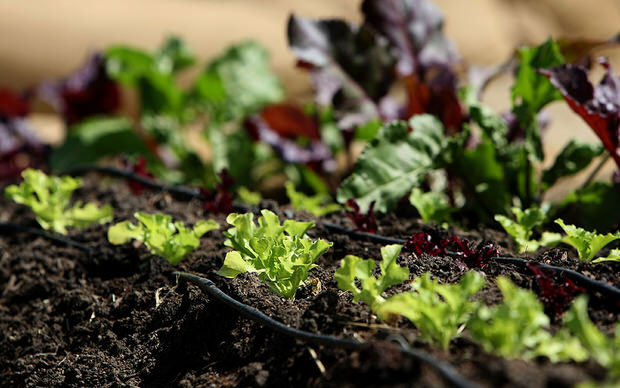






The definition of organic gardening is a garden that does not use pesticides to kill pests. This method can be used in either vegetable or flower gardens. In vegetable gardens organic is the safest for you since you will be consuming what you have grown. But, if you utilize it in flower gardening also, it is safest for the environment.
Raising an organic garden has many sound reasons to encourage gardeners to go this route. As mentioned above all of your vegetables will be pesticide free, which means no poison on the food you are growing. While in flower gardening, many people plant flowers that will attract butterflies or bees which you won’t attract if you use pesticides. You especially want to remain pesticide free if you have small children or pets because chemicals could be harmful for them.
Your organic garden will be anything but simple gardening. Every garden takes effort and research and your organic garden is no exception. As with all gardens you must start with a plan. Research the plants you wish to grow. Find out what their needs are when it comes to light, fertilizer, PH in the soil and drainage. Be diligent in picking a spot that is well suited to your plants. If you are planting an herb garden select a site that is close to your kitchen door for easy harvesting. Find out if there are companion plants and if there are, consider using them.
When planting an organic garden you will need some really good compost. You can make your compost out of soil and organic matter. Organic matter includes leaves, manure, vegetable refuse, coffee grinds and eggshells. You can include peels from fruits and vegetables. (Potato skins, apple skins, orange rinds, etc.) Start your compost early, find a place to put your compost and work it frequently. By working it I mean turn it with a shovel so the organic material will break down. When you are ready to start planting work your compost into the garden beds before you plant.
Your garden location is very important. You need to pick a spot that gets lots of light and drains well. If it is a very windy spot you will have to figure out some way of sheltering. Don’t pick a low spot on your property since that might flood during heavy rains. You really want to put the garden in a place that has easy access for you and for watering with your hose.
Mentioned above were companion plants. Companion plants are plants that repel unwanted pests. If you plant roses, plant some garlic. It is said that garlic will repel rose’s nemesis, aphids. Cucumber beetles will not be a worry if you plant oregano. Marigolds will also repel many pests. For a good natural pesticide follow this recipe:
In a jar, combine 1 teaspoon dishwashing liquid and 1 cup vegetable oil. Shake vigorously. In an empty spray bottle, combine 2 teaspoons of this mixture and 1 cup water. Use at ten-day intervals (or more often if needed) to rid plants of whiteflies, mites, aphids, scales, and other pests.
If you come up with a good plan you can have flowers and vegetables mixed together. Make sure that you know your zone and the conditions that apply in your area. Flower and vegetable gardens will be very different in Alaska than in Florida.
Your organic garden will take some work, but it will not be in vain when you can sit back and enjoy your beautiful blooms or make some culinary delights from the vegetables and herbs you have grown.
Happy Gardening!
Article by Mary Hanna. Mary is an aspiring herbalist who lives in Central Florida. This allows her to grow gardens inside and outside year round. She has published other articles on Cruising, Gardening and Cooking.
Copyright © www.100flowers.win Botanic Garden All Rights Reserved